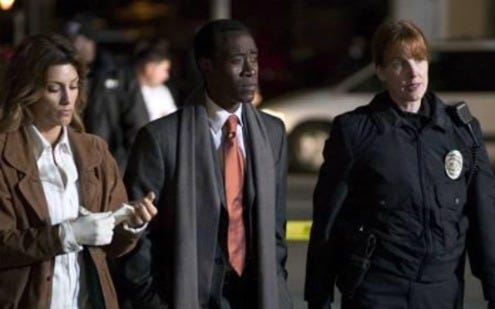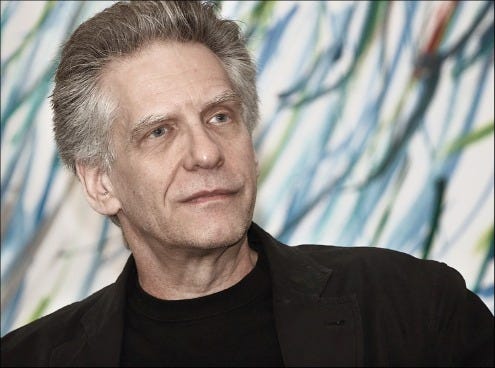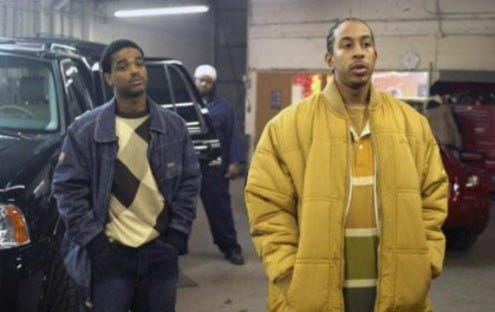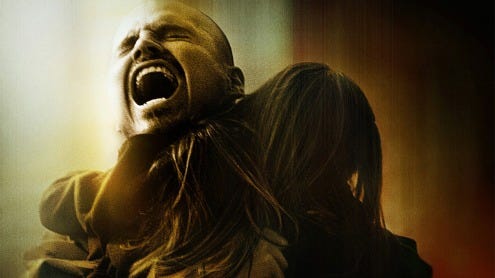Cinema Smackdown: Crash (1996) vs. Crash (2004)
Hello again, Yappers! Out latest Cinema Smackdown pits two films against each other — two films that share the same one-word title but are about two very different subjects.
First, we have David Cronenberg's auto-erotic opus 1996 film "Crash," starring James Spader and Holly Hunter and based on the novel by J.G. Ballard about a group of disenchanted people who find car crashes to be sexually stimulating. The film was extremely controversial upon its release with its sordid subject matter and intense sexual situations.
Next we have 2004's "Crash," the Best Picture-winning film written and directed by Paul Haggis, which is an ensemble piece about a group of Angelenos dealing with racism in society.
Which of these two "Crash"es will prevail? Only one way to find out ...
Cast

1996: James Spader, Deborah Kara Unger, Holly Hunter, Rosanna Arquette and Elias Koteas.
2004: Sandra Bullock, Don Cheadle, Terrence Howard, Matt Dillon, Thandie Newton, Keith David, Ryan Phillipe (a strangely credited misspelling) and Brendan Fraser.
Advantage: 2004.
Plot

1996: A man (Spader) is involved in a car crash that kills another man. He soon finds he's turned on by car crashes and embarks on an obsessive affair with the dead man's wife (Hunter) and several other people as he discovers an underground "club" that eroticizes car accidents.
2004: A series of interconnected stories of racism that revolve around a yuppie couple (Bullock and Fraser) whose vehicle is stolen; the philosophical carjackers who robbed them (Larenz Tate and Ludacris) debating racial issues like a couple of sociology grad students; a racist cop (Dillon) hassling a well-to-do black couple (Newton and Howard); a black detective (Cheadle) investigating cop-on-cop violence; and the Hispanic locksmith (Michael Pena) who installs deadbolts on the yuppie couple's house.
Advantage: Push
Director

1996: David Cronenberg, auteur of such films as the 1986 remake of "The Fly," "Scanners," "Eastern Promises," "Naked Lunch," "A History of Violence" and "Videodrome."
2004: Paul Haggis, a powerhouse screenwriter whose other movie directing credits include "In the Valley of Elah," "The Next Three Days," and 1993's "Red Hot."
Advantage: 1996
Sexual Depravity

2004: Dillon's racist cop pulls over Newton's character and violates her in front of Howard's character. Cheadle has sex with his Hispanic partner (Jennifer Esposito) and is interrupted by his mother, to whom he says he's "having sex with a white woman." When Esposito objects to being called white, he again (incorrectly) calls her a Mexican.
1996: Well, the movie is about people who get their jollies from car crashes, but OK, you asked for it: an airplane is a participant in a sexual encounter; Spader tosses some salad; Spader and Unger, who are married, openly discuss their affairs with each other; Hunter bares a breast immediately after the accident that kills her husband; Spader and Hunter have vehicular sex in an airport parking garage several times; Spader and Unger engage in dirty talk during sex; Arquette shows a car salesman some braced leg; Spader and Koteas romp in a car; Arquette and Hunter do the same; Spader and Arquette do it roughly while he caresses her braces and scar; miscellaneous other instances of nudity/sexuality.
Advantage: 1996.
Blatant Pretentiousness

1996: Spader delivers his typical snooty art-house actor performance that drips with pretentiousness.
2004: Every scene with the philosophical carjackers, who are also the most entertaining part of the movie; whenever coincidence, fate or whatever brings Newton and Dillon back together; Dillon tosses racial epithets at a black woman because he's having a bad day; Pena tells his daughter a story about his impenetrable invisible cloak that you just know will play into things later; Cheadle is asked to cover up a crime so the district attorney can score political points; Bullock turns into a raging racist bitch after she's carjacked by two black guys and immediately hates on every non-white she can see; an Arab man (Shaun Toub) is so frustrated by what he perceives as people taking advantage of him (along with his own inability to communicate) that he becomes violent; when a young girl is apparently shot in an accident, both of her parents cry out in agony for a good 30 seconds while the shooter looks on in horror. Finally, after an eternity of screaming and clutching their daughter's corpse, they realize she wasn't actually shot at all. OK, so pretty much the whole movie falls under this category.
Advantage: 1996.
Risks

1996: Hunter had a mostly squeaky-clean reputation before playing a woman who is turned on by car crashes, including the one that killed her husband right in front of her, and who embarks on a torrid, perverse affair with the man responsible for the accident.
2004: This "Crash" is as narratively and politically safe as it gets. Most everyone in the film exhibits racist tendencies, and the film's overarching message seems to be that while inside every racist is a great person longing to break free and be accepting, by the time they get to that point it's too late because some black guy will rob, beat or kill you, or the Hispanic guy you hired to fix your lock screwed you over or the Iraqi guy who hired you to fix his door was a jerk.
Advantage: 1996
Awards

1996: "The most controversial movie you'll ever see," but no love from the Academy. It did win a Special Jury Prize at Cannes, and the Adult Video New award for "Best Alternative Adult Feature."
2004: Inexplicably earned Best Picture honors at the Academy Awards in 2005, beating out contenders like "Good Night, and Good Luck," "Munich," "Capote" and the projected front-runner "Brokeback Mountain," It also won Oscars for Best Original Screenplay and Best Editing.
Advantage: 2004.
Winner:

1996! "Crash" (2004) is arguably the worst film to ever win best picture. It's full of bad racial cliches, poor metaphors, dialogue that sounds as if everyone in the film has an advanced psychology degree (but thinks in terms of high-school students discussing racism, including the carjackers) and all of the challenges of a coloring-book maze. "Crash" (1996) is hardly Cronenberg's best work, but his creepy psychosexual vibe is unmatched, and the themes he raises at least provoke thought.
Previous Cinema Smackdowns
Kingpin vs. The Big Lebowski Batman (1966) vs. Batman (1989) vs. Batman Begins It's a Wonderful Life vs. A Christmas Story


